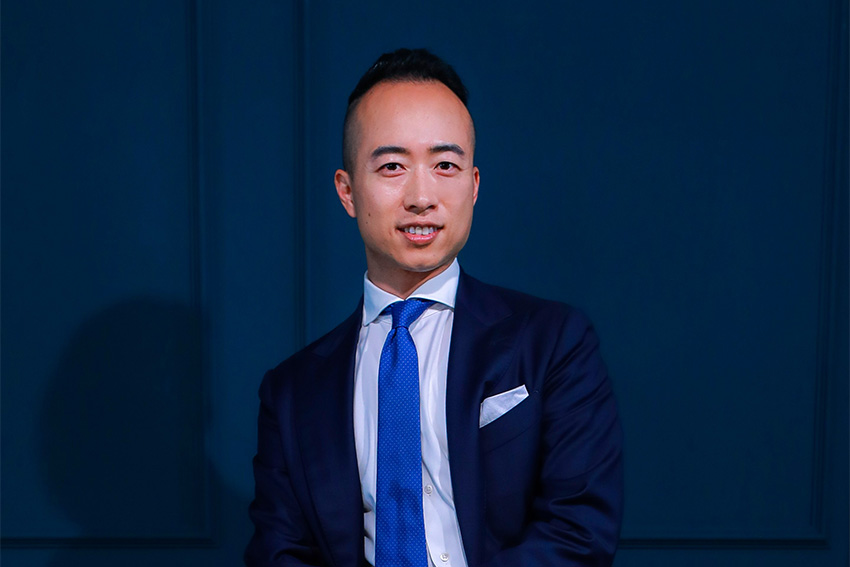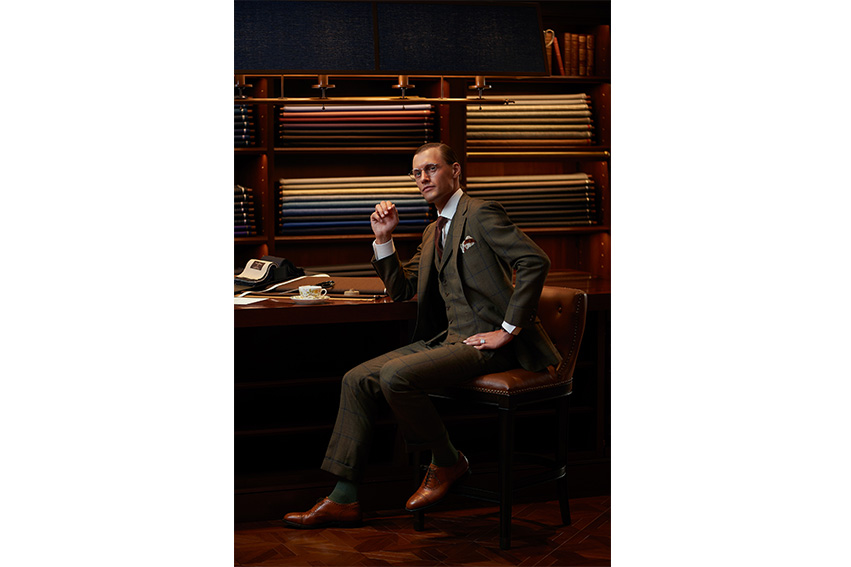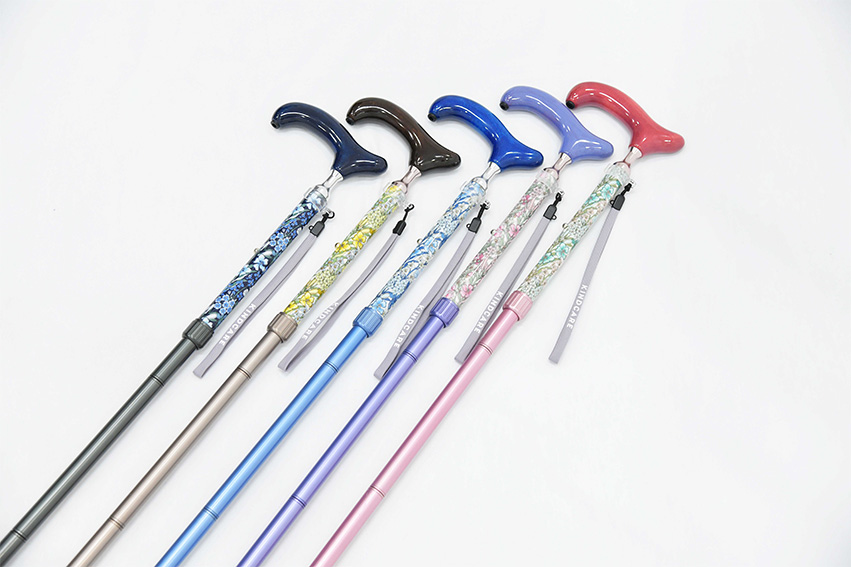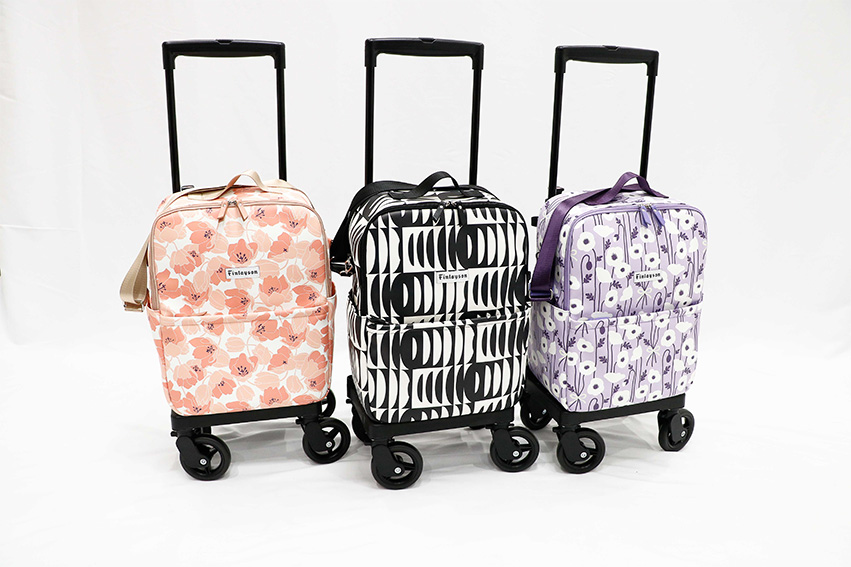Leveraging Japanese craftsmanship and partnerships with prestigious brands, WATAKI aims for steady growth, particularly in Asia, producing heirloom-quality products.

Mr. Shou Watanabe, we saw throughout our research that you have had quite an illustrious career. You started as a marketing researcher and soon enough you were working in the American startup culture with the launch of an IT hardware startup where you were in charge of global sales and marketing for the company. You then joined an online travel agency, Viator, and managed to climb the hierarchy all the way to the position of manager for Asia Pacific before coming back to your family business, Wataki. Here is a very different working culture from what you experienced in the West. What are the main lessons you managed to learn from working in such diverse and dynamic work environments and how do you plan to implement these lessons to make a better working environment here at Wataki?
I first visited the United States when I was 15 years old. I attended high school and college there before embarking on my career with American companies. My initial job was in New York City, where I served as a marketing specialist for an apparel company. Following that, I returned to Japan and spent a year working at Wataki. Seeking deeper insights into the family business, I immersed myself in various departments. However, I realized it wasn't the right fit for me, prompting my desire to return to the United States. Subsequently, I secured a position with a university research institution, spending seven fulfilling years in San Francisco. This period greatly shaped my professional trajectory, teaching me invaluable project and task management skills. I believe this experience laid the groundwork for my current endeavors. As you're aware, Wataki has a 130-year history, signifying its enduring legacy. While age can signify quality, it can also present challenges when accumulated issues arise, potentially impacting a business's viability.
At the core of my approach is what we term as SSL - simple, speedy, and logical. It's crucial to strike a delicate balance between these three elements to ensure the successful execution of projects while driving progress. Rushing through tasks without logical reasoning can lead to oversights, while overly complex solutions may lack practicality. Similarly, overly logical approaches risk consuming too much time. Achieving this balance is paramount.
During my eight years with the company, I've spearheaded numerous initiatives aimed at enhancing efficiency and effectiveness. I've revamped the reviewing and payment systems, upgraded hardware and software, refined the company mission, and vision, and established clear value guidelines, among other endeavors. My focus has been on laying down solid foundations. Given the company's longstanding presence, many aspects of its operation were implicit rather than explicit. By formalizing these aspects, we ensure clarity and alignment among team members, preventing misunderstandings and fostering a cohesive working environment. I firmly believe that a well-documented framework is essential for the smooth functioning of any business.
We think that what you are talking about is very important when we consider the big changes that have occurred over the past four years due to the COVID-19 pandemic, especially in the fashion and apparel world. We saw as a consequence, the rise of e-commerce platforms, which is forcing brands to redesign their consumer experience to give new functionality to brick-and-mortar stores. We also saw that you recently moved your flagship store, so with that in mind, how do you foresee the evolution of physical retail playing out in the near future? What strategies are you employing to provide your customers with a unique, in-store experience?
We have two primary brands within our portfolio: Kindware and Kindcare. Kindware is positioned as a luxury brand, and to complement this, we envisioned a flagship store that exudes opulence and exclusivity. This store is a hidden gem, tucked away in a discreet location, reflecting the essence of luxury. Accessible only by reservation, it offers a heightened level of intimacy and sophistication.
As you step into the store, passersby outside catch a glimpse of the exclusivity within. The interior ambiance is meticulously crafted to provide an unparalleled experience, complete with champagne, delectable finger food, personalized shopping assistance, and ambient music. Our focus in this flagship establishment is solely on fostering deep connections with our customers and treating them with the utmost care and reverence. This flagship store epitomizes our commitment to providing a royal experience for every visitor, reflecting the essence of our brand.
Kindcare represents a departure from Kindware's approach, adopting a warmer and more inclusive atmosphere. This shift is driven by the recognition of two primary customer segments within this brand: the users themselves and their family members—mother, father, daughters, sons, nieces, nephews, and cousins.
While maintaining a high-end ambiance, we have intentionally created a more open environment to cater to the specific needs of our clientele. While products like walking sticks and push-carts are readily available in the market, they often lack design, and style and fall short in terms of quality. Our discerning customers seek products that are not only stylish but also functional.
To meet this demand, we have forged partnerships with esteemed brands such as Sophie Hallette and Finlayson, focusing on using premium materials like wood while avoiding excessive use of plastics. This commitment to quality and customization allows us to stand out in a niche market.
Within our stores, the emphasis is on fostering strong customer relationships and building trust with our valued clientele. Our in-store salespeople undergo extensive training, with roles such as Style Coordinators (SCs) and Tailor Coordinators (TCs). SCs are dedicated to cultivating relationships with customers, providing tailored solutions to their specific needs. By prioritizing intimacy and personalized service over quick sales, we aim to create lifelong customers rather than one-time purchasers.

You talked about training in-store salespeople to have a special relationship with clients, and this is going to become much more difficult as Japan’s demographic continues to change. With the shrinking demographic, there are going to be issues with recruitment and passing on skills. How are you overcoming these challenges? What are some of the strategies you are implementing to navigate Japan’s changing demographic and perhaps take advantage of the opportunities presented?
Labor shortages pose a significant challenge for us. Currently, our strategy revolves around branding, recognizing that many Japanese companies struggle with marketing and self-promotion. We are taking a proactive approach by openly communicating our identity and the value we offer to consumers. Brand value is at the forefront of our messaging, emphasized during interviews with potential employees.
Our work environment is undoubtedly demanding, but it also offers ample rewards for those who excel. Wataki operates on a meritocratic basis, much like many Western companies. We prioritize rewarding hard work and dedication to the brand. Central to this approach is our commitment to respecting employees' skills and compensating them accordingly.
While this strategy may take time to yield results, we believe it is essential to maintain our company culture and values. Rushing to fill positions with individuals who are not a good cultural fit can ultimately be more detrimental and costly in the long run. We place great importance on our culture, as it directly impacts our interactions with customers. Therefore, we are selective in our hiring process, ensuring that new employees align with our culture and brand ethos.
One of the true critiques that you can throw at Japanese companies is their lack of marketing and branding ability. This is particularly true with SMEs who are competing in high-end markets against legacy brands, thus creativity becomes key. How do you set your brand apart in comparison to these historical Western companies in the same market segment?
First and foremost, most of our products are made in Japan, reflecting our roots as a Japan-based company. With a legacy spanning over a century, we have a rich history of catering to esteemed clients, including the imperial household agency. Our commitment to Japanese craftsmanship has earned admiration from influential figures both domestically and internationally. While we acknowledge that our brand may not resonate with everyone, we strategically target individuals in the upper echelons of society.
I liken our brand to a baby—we nurture it with care and dedication, guiding it towards extraordinary achievements. Rather than pursuing rapid expansion to numerous locations, we prioritize the essence of our brand. Each step of our growth is deliberate, ensuring that our brand remains synonymous with excellence and prestige.
Wataki has four main types of businesses; tailoring, healthcare, logistics, and fabric inspection. Among all of the different divisions you have, which would you say has the most growth potential for years to come?
Our primary objective is to expand our customer-facing brands, specifically Kindware and Kindcare. I anticipate a gradual yet consistent growth trajectory for Kindware, while Kindcare is poised for rapid expansion. What sets Kindcare apart is its unparalleled offering as a one-stop shop for a diverse range of products. We see a unique opportunity to lead the market in this space and to capitalize on this potential, we're actively engaging with customers across English, Japanese, and Chinese-speaking markets to gauge interest and acquire a global customer base. While we're currently in the exploratory phase outside of Japan, we're optimistic about the prospects and are strategically testing the waters.
Our fabric inspection and logistics divisions operate within the B2B sphere, providing a stable revenue stream and fostering strong relationships with business partners. Given the current landscape, we foresee continued stability and longevity in these sectors. Interestingly, many competitors in our industry are facing closures, which further solidifies our position in the market.

The history of Wataki has been to incorporate Western fashion senses and yet today you mentioned that one of your branding strategies is to leverage the Japanese craftsmanship involved in the creation of your products. What kinds of elements of Japanese craftsmanship are you looking to highlight within your products?
My ancestors made a strategic move by recognizing the growing significance of formal wear in Japan. They traveled to the UK, Italy, and the US to study craftsmanship and observe the fashion trends of the elite in those societies. By integrating the best practices from these regions with modern manufacturing techniques and the meticulous dedication of Japanese artisans, they laid the foundation for our brand's success.
Japanese craftsmen are renowned worldwide for our unparalleled focus on small and precise details, a unique approach unmatched by any other nation. A critical aspect of Japanese craftsmanship lies in the consistent delivery of top-notch quality, achieved through repetitive practice and unwavering dedication. This commitment to perfection is exemplified in the mastery of skills, such as those demonstrated by sushi chefs who devote decades to honing their techniques.
In our partnership with Huntsman, they were pleasantly surprised by the exceptional quality of our garments. Every detail, from stitching to lining, surpassed their expectations. At the time, we may not have realized the extent of our proficiency, but our craftsmanship spoke volumes, leaving a strong impression on our partners.
Additionally, throughout Japanese history, there are countless instances where we've excelled at integrating Western culture into our own and further evolving it into something entirely new and exciting. At its core, Japan respects other cultures and products, yet simultaneously, we possess the ability to seamlessly incorporate them into our own cultural tapestry while infusing them with the essence of Japanese tradition.
Making sticks and rollators is very different from making luxury suits and formal clothes in general, but you’ve managed to tackle this challenge successfully. What kinds of synergies have you been able to leverage between your two different style brands?
When I joined this company, I noticed a lack of synergy between Kindware and Kindcare due to their different customer segments, products, and brand names. It seemed like Kindcare's association with healthcare was potentially damaging the reputation of Kindware, as customers may not have wanted to buy suits from a brand associated with healthcare. Consequently, we made the decision to separate the two brands in terms of their brand image.
In some ways, Kindcare complements Kindware, as customers who delve into their research will discover their relationship and the prestigious 130-year history they share. Additionally, Kindware's customer base tends to be older, with an average age of around late 50, suggesting they may have an interest in purchasing items like walking sticks or rollators. However, instead of loudly broadcasting this connection, we prefer to subtly leave it for customers to discover on their own.
Quality is paramount to us. Whether making our own products or procuring from Europe, we prioritize excellence in every detail. This commitment to superior quality is driving the Kindcare brand to ascend to a high-end status. We firmly believe that the pursuit of quality outweighs the allure of selling inexpensive goods. While fast fashion brands may abound, their fleeting nature lacks the enduring appeal we seek to instill in our customers. Our aim is to foster lasting connections with our products – items that endure for generations to come, transcending mere trends. That, in essence, is the essence of the Kindware philosophy.
We found in our research that your Tochigi factory also produces OEM for both domestic and international companies. We can’t ask for client names, but could you give us a little more information about your B2B business and the potential that you see in providing your services to international brands?
We find ourselves fortunate that numerous international brands are reaching out to us, and we feel deeply honored by their recognition of Nasu Yume Factory’s craftsmanship. At present, we are not actively seeking to expand our B2B partnerships beyond their current level. Our intention is to maintain a highly exclusive approach in this regard.

You’ve mentioned a few collaborations with foreign brands today. You started in 1971 with a technical partnership with Huntsman, the tailor that is appointed to the British Royal Family. This history continues with some of the biggest and most prestigious brands worldwide working together with Kindware. What role do partnerships play in your business model and are you currently looking for any new partnerships in overseas markets?
At present, we are actively seeking partners for Kindcare, particularly in Scandinavia. As you may already know, Scandinavian design is renowned for its exceptional quality, especially in healthcare products. We are interested in forming partnerships to distribute their products or engage in OEM arrangements in Japan.
Regarding Kindware, we are satisfied with our current partners. However, our primary focus is on Kindcare, and we are actively seeking partners to collaborate on creating exceptional functional products. Additionally, we already have several partners in Taiwan, and we are seeking to expand our partnerships in Taiwan, Europe, and Scandinavia.
Not only have you sold your products in Japan, but also overseas in the US, and other countries. Where is next? What country do you believe shows growth potential for your company in the future?
We are considering expansion in Asia, but our approach does not involve opening physical shops. Instead, we are taking a cautious and gradual approach, focusing on building an exclusive customer base of loyal enthusiasts. Currently, we are still in the process of testing the overseas market and determining the most beneficial strategies for our business.
Right now is quite an exciting time for Japanese brands because of some big macroeconomic factors. Japanese craftsmanship used to come at a certain price premium, but with the depreciation of the JPY, we believe it is a big chance for brands to actively push exports. Do you concur with this sentiment?
Certainly. I agree with your observation. It appears that many Japanese makers are seizing the opportunity presented by the current situation. However, it's important to note that our brand does not specialize in mass-produced products, nor do we have a sustainable sales channel for such items. Therefore, we do not view this as a viable opportunity for our particular brand.
Japan is growing into a leading tourism destination, and because of the JPY depreciation, many inbound tourists see Japan as a great shopping destination. Are you targeting foreign tourists that come here?
That's an excellent question, and it does present an intriguing opportunity. Over the past few years, we've successfully sold hundreds of walking sticks to foreign tourists. What's interesting is that our foreign customers were particularly drawn to our walking sticks featuring spring-lock technology and utilizing Liberty London fabric. They often bought these items in bulk to give as gifts to their family members. However, we don't view this as a sustainable strategy, so we're not planning to specifically target these foreign customers. Pursuing this trend could introduce certain risks, especially considering our strong focus on maintaining exclusivity and prestige.
In recent years the apparel industry as a whole has been the target of heavy criticism for its environmental impact. Companies in this industry have the longest supply chains in the world. What is your company’s strategy in terms of environmental friendliness and sustainability?
One thing I can confidently state is that we have no intention of venturing into the realm of fast fashion. To put it simply, fast fashion typically involves cheaper products, which often entails cheap labor—a concept that isn't synonymous with Japan. While there may be some perceived value in affordability, the sustainability of such practices is highly questionable. Companies like ours bear the responsibility of setting a standard and ensuring that our employees are on the right path. Opting for cheaper alternatives inevitably passes the burden onto someone else. Our trajectory remains steadfast: we will continue to craft personalized, high-end, and prestigious products for our dedicated clientele.
As mentioned previously, our goal is to create products that transcend generations—a legacy of quality and emotional resonance that prompts individuals to pass down these items as cherished heirlooms. For the Kindware brand, we're not simply producing goods that endure for a few fleeting years; rather, we're crafting pieces designed to last for decades—perhaps even spanning three generations. Our luxury suits are meticulously constructed to withstand the test of time, thereby mitigating the waste issues often associated with the apparel industry.
Kindcare brand, we prioritize sustainability by incorporating recycled materials into some of our products. We believe these materials offer both excellent quality and environmental benefits. Additionally, our preference for wool materials in our garments aligns with our commitment to environmental responsibility.
Wool is known for its ability to purify the air, making it a more eco-friendly choice compared to alternatives like cotton or polyester. By choosing wool, we aim to minimize our environmental footprint and contribute to a healthier planet.
We recognize the importance of collective action in preserving our environment for future generations. Through initiatives like using recycled materials and wool, we strive to play our part in protecting our planet and promoting sustainability.
You became the CEO in 2022 of this 130-year-old company and you’re the fifth generation of your family to hold this position. What objectives would you like to achieve as this generation's CEO of Wataki? What legacy would you like to be remembered by once you are ready to hand the baton to the next generation?
This is a question I've pondered numerous times and one that I'm frequently asked: What do I want my legacy to be? There are various ways to approach this question. It could involve achieving a certain revenue milestone or expanding our brands globally. However, what truly brings me joy is seeing happiness among those around me – our employees, customers, and my own family.
I aspire to cultivate a company culture akin to that of a family. We affectionately refer to ourselves as the "WATAKIFamily," where everyone is valued and supported like family. My vision is to nurture a healthy and harmonious work environment, much like a functional family, while maintaining a drive and determination to achieve our goals. Ultimately, it's about laying the groundwork for the next 100 years while fostering happiness and fulfillment within our community.
For more details, explore their website at https://thekindware.com/
0 COMMENTS